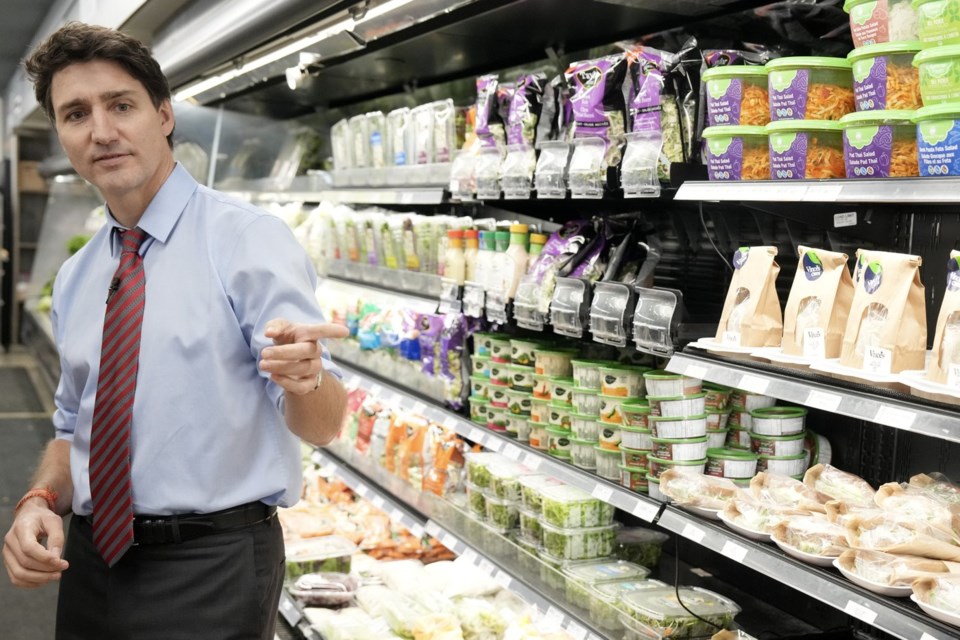OTTAWA — The Liberal government is pulling out the federal wallet to put more money into people's pockets over the holidays, but its recently announced affordability measures create winners and losers.
Prime Minister Justin Trudeau announced on Thursday that the federal government will remove the goods and services tax on a slew of items for two months, starting Dec. 14.
But in Ontario and Atlantic provinces, the provincial and federal sales taxes are blended together into a harmonized sales tax, which means Canadians in those jurisdictions will get a larger break.
In Atlantic Canada, for example, Canadians will not have to pay the 15 per cent HST on on the items affected by the federal tax break. But in in Manitoba, Saskatchewan and British Columbia if the provinces don't waive their sales taxes, Canadians will only be relieved from paying the five per cent GST.
Agreements between the federal government and those provincial governments stipulate that Ottawa has to compensate provinces for changes to the harmonized sales tax that reduce their revenues by more than one per cent.
A spokeswoman for Finance Minister Chrystia Freeland wouldn't say whether the federal government will be compensating those provinces and instead encouraged them to pitch in.
"We hope all provinces will join us and provide their share of tax relief for their residents over the holidays, as Newfoundland and Labrador has done," Katherine Cuplinskas said in a statement.
The federal government also plans to send $250 cheques to Canadians who were working in 2023 and earned up to $150,000.
That means Canadians who were not working in 2023, including those who were receiving social assistance or were in retirement, will not be sent a cheque in April.
In the House of Commons on Friday, NDP MP Peter Julian called the government out for not including Canadians with fixed incomes.
"Why are Liberals excluding seniors and people with disabilities from the real help they need this holiday season? Why won't Liberals help them, too?" Julian asked during question period.
At a news conference on Friday, Trudeau said that the federal government has already stepped up to help the most vulnerable Canadians and that it is now time to lend a hand to workers.
"Over the past number of years, we have been extraordinarily present in helping the most vulnerable Canadians," Trudeau said, mentioning the boost to old-age security for seniors aged 75 and older and the Canada Child Benefit.
"But as I travel across the country, I do regularly hear from working Canadians who are having trouble making ends meet, saying, 'look, I don't have kids. I'm not a senior yet, and I'm facing challenges.'"
The GST break, which is expected to cost the federal government $1.6 billion, will apply to a number of items including children's clothing and shoes, toys, diapers, restaurant meals and beer and wine.
It also applies to Christmas trees — both natural and artificial — along with a variety of snack foods and beverages, and video game consoles.
An estimated 18.7 million people will receive a cheque this spring, costing the government about $4.7 billion.
This report by The Canadian Press was first published Nov. 22, 2024.
Nojoud Al Mallees, The Canadian Press



